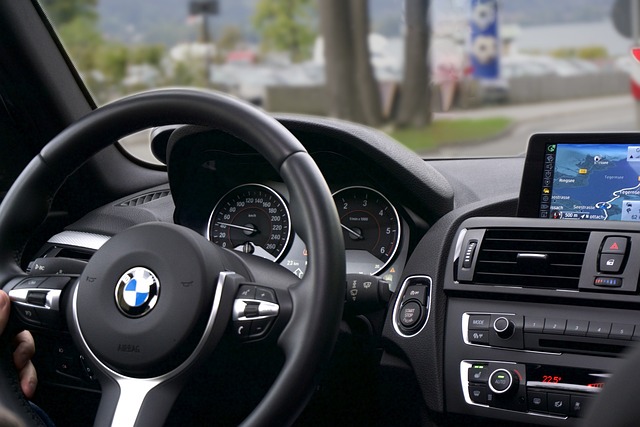In today's diverse automotive market, tailored car insurance is crucial due to varying vehicle types and risks. Different vehicles require distinct coverage: compact cars may have lower liability costs, while SUVs and trucks necessitate comprehensive protection for rollovers and cargo damage. Insurers consider vehicle value, safety features, usage patterns, and claim likelihood. Comprehensive car insurance provides an extra layer of protection against unforeseen events. Policy exclusions, such as high-risk driving behaviors and natural disasters, should be understood to avoid gaps in coverage. Modern car insurance offers flexible, customizable policies with advanced features like personalized rates and roadside assistance, catering to diverse needs and lifestyles. When choosing a plan, consider vehicle specifics, driving habits, road conditions, financial situation, and deductibles to ensure adequate protection without budget strain.
Looking for comprehensive car coverage that suits all vehicles? Understanding your vehicle’s unique insurance needs is crucial. This guide breaks down the essentials, from distinguishing between various vehicle types and their specific insurance requirements to navigating policy exclusions and comparing traditional vs modern car insurance policies. Discover customization options for personalized protection and learn how to choose the perfect car insurance plan tailored to your needs.
Understanding Different Types of Vehicles and Their Insurance Needs

In today’s diverse automotive landscape, vehicles come in various types, from compact cars and SUVs to trucks and recreational vehicles. Each category has unique characteristics, and so do their insurance needs. Car insurance isn’t one-size-fits-all; it needs to be tailored to address the specific risks associated with different vehicle types. For instance, a small car may have lower liability costs due to its size and relatively lower damage potential, while an SUV or truck owner might require more comprehensive coverage to protect against rollovers or cargo damage.
Understanding these differences is crucial when seeking car insurance. Different vehicles can face distinct challenges on the road, from high-speed accidents to off-road incidents. Insurers consider factors like vehicle value, safety features, usage patterns, and the likelihood of certain types of claims. By recognizing the unique needs of your vehicle, you can ensure that your insurance policy provides adequate protection against potential risks, offering peace of mind while driving in a dynamic and ever-changing world.
The Importance of Comprehensive Car Insurance Coverage

Comprehensive car insurance is an essential component of vehicle ownership, offering protection against a wide range of potential risks and financial burdens. It goes beyond the basic liability coverage, which covers damages caused to others in an accident, by including provisions for various scenarios specific to your vehicle. This additional layer of protection is vital for several reasons.
Firstly, it safeguards you from significant out-of-pocket expenses related to accidents or damage to your own car. It can cover repairs or even a complete vehicle replacement if the damages exceed the deductible. Moreover, comprehensive insurance can provide relief from financial stress in unforeseen circumstances like natural disasters, theft, or vandalism, ensuring that your investment in your vehicle is secured.
Navigating Policy Exclusions: What's Not Covered?

When considering car coverage, understanding policy exclusions is vital for any vehicle owner. Car insurance policies typically outline what’s covered and what isn’t, and it’s crucial to read through these terms carefully. Certain risks and events are often excluded from standard car insurance plans. These might include high-risk driving behaviors like racing or drunk driving, as well as specific vehicle conditions such as modifications that alter the car’s safety features or performance.
Additionally, natural disasters, such as floods or earthquakes, are usually not covered by standard car insurance policies. Other exclusions may include theft of personal belongings from your vehicle or damage caused by neglect or lack of maintenance. It’s important to note these gaps in coverage to ensure you have adequate protection for your specific needs.
Customization Options for Personalized Vehicle Protection

When it comes to car coverage, one size does not fit all. Today’s car insurance market offers a wide array of customization options that allow drivers to tailor their protection to their specific needs and preferences. From comprehensive coverage for those who want peace of mind to liability-focused plans for budget-conscious drivers, there’s a policy out there for every driver.
These customization options extend beyond the basic coverages. Drivers can choose to add endorsements for specialized items like classic cars, recreational vehicles, or even electric vehicles. They can also opt for additional perks such as roadside assistance, rental car coverage, and concierge services that enhance the overall driving experience. By carefully selecting these add-ons, individuals can create a personalized car insurance policy that not only protects their vehicle but also reflects their unique lifestyle.
Comparison: Traditional vs Modern Car Insurance Policies

In the evolving landscape of car insurance, policies have progressed from traditional to modern approaches, each offering distinct advantages and coverage options. Traditional car insurance policies often focus on basic liability coverage, protecting against claims for bodily injury and property damage. This type of policy is typically structured around fixed rates and limited customization, making it a one-size-fits-all solution.
Modern car insurance policies, on the other hand, provide a more nuanced and flexible approach. They often incorporate comprehensive coverage options such as collision, roadside assistance, rental car coverage, and various add-ons for specific needs like sports or high-end vehicle protection. With advanced algorithms and data analytics, modern policies can offer personalized rates based on individual driving habits and vehicle specifications, ensuring tailored protection without compromising on essential Car Insurance benefits.
How to Choose the Right Car Insurance Plan for Your Vehicle

When selecting a car insurance plan, understanding your vehicle’s unique needs is crucial. Different cars have varying levels of risk and require specific coverage options. For instance, high-performance vehicles or those with advanced technology might need specialized policies to cover potential repairs or theft. Conversely, older cars with lower resale value may opt for more basic coverage to save costs.
Consider your driving habits and the type of roads you frequent. If you frequently drive in adverse weather conditions or dense traffic, comprehensive or collision coverage might be beneficial. Also, evaluate your financial situation; if you can’t afford substantial deductibles, choose policies with lower deductibles to ensure you’re protected without causing a strain on your budget.
